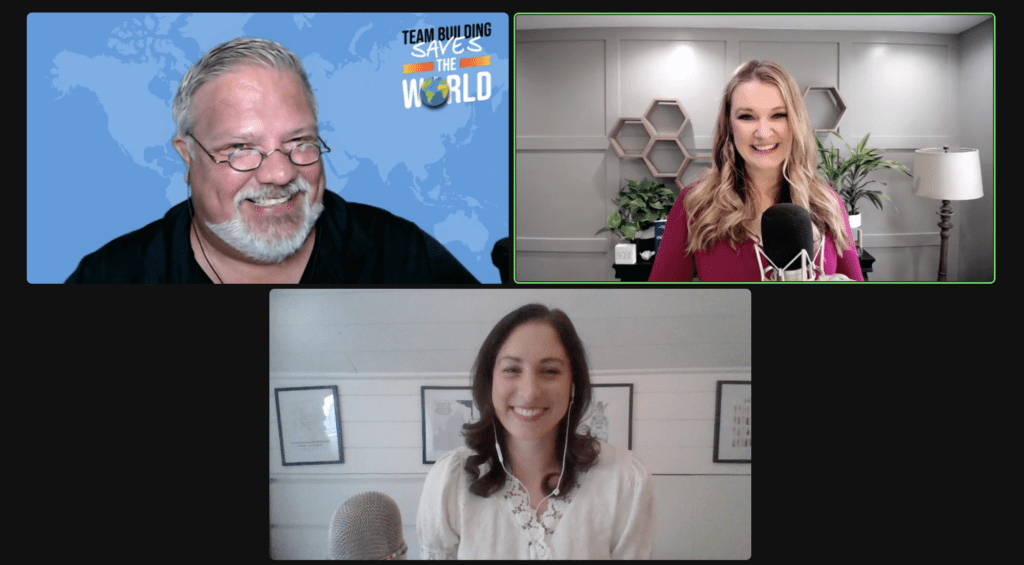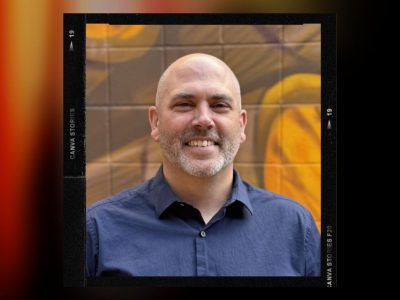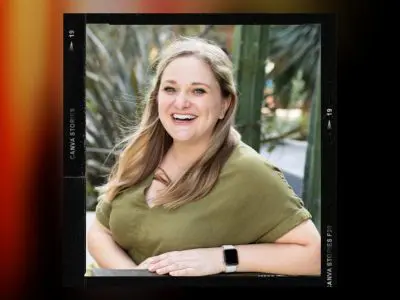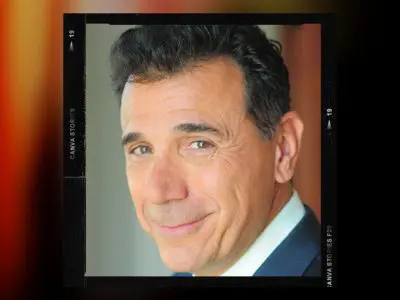The Rise of Empathetic Leadership
w/Robyn Garrett, Christie Turley
Use the buttons above to listen now.
Transcript - The Rise of Empathetic Leadership
Rich: On this episode of team building saves the world,
Robyn: make time for it. So when you’re making time for your people, you’re making time for their preferences. You are sort of molding yourself a little bit more around them. Again, it’s not about me, right? It’s about the team,
Christie: but that can be also a sweeping statement across humanity.
Okay. Because man searched for meaning, right? Victor Frankel trust. Isn’t quick to form, right? Trust takes time. Right? You can have individuality. While you’re having unity.
Rich: Excellent. That sounds like a blurb right there.
Hello team. It’s me, your old friend rich rininsland host of team buildings saves the world. The show where I speak to leaders and innovators in employee wellness and corporate culture on how it reflects in the world of today. And today, I hope you can feel me because we’re talking empathy in the workplace with speaker and expert in human, emotional and behavioral psychotherapy, Christi Turley, and the CEO of Beamably where she creates products and technology to help leaders grow.
Robin Garrett. I need to share some love with my supporters at team bonding. If your team is ready to experience teamwork with the power of play, then visit team bonding.com to learn more. Now team join me in welcoming noted author and TikTok guru, Robin Garrett, and fellow author, and the host of the higher genius podcast.
Christy Turley,
just so you ladies know that is a small group of people. I keep chained up under my desk. Their entire job is just to applaud you. Love it. Welcome. Thank you both so much for coming on board. It’s great to have you here. Um, we’re talking empathy. So Robyn, let’s start off with you. Can you just define empathy as it relates to the workplace?
Robyn: Sure. I mean, empathy in the workplace is the same as it is everywhere. It’s just the ability to understand what another person is feeling.
Rich: Okay. And Christy, anything you wanna add?
Christie: Yeah, absolutely. Yeah. It’s also about being comfortable with other people who don’t look like you or think like you, or believe like you and being okay with that.
Being able to still stand in your power and being open to other people’s perspectives and a diversity of ideas and back.
Rich: Speaking of which let’s take a second and let my team out there, get to know you a little bit better Christy this time. I’ll start off with you. Tell us a little bit about yourself, your background and how it was that you got into this focus.
Christie: Yeah, that’s a great question. So my, my career actually spans 20 years. I started out in marketing. So you were five working is what you’re saying in corporate side, working at, um, a couple companies by the age of 24. I had achieved a lot. I. Couple companies grow by 30 million total. So I look back at that my 24 year old self I’m, like what?
Like , how did that happen? Like, that’s amazing. And then I started and I branched off into my marketing and branding agency and we did a lot of work with a lot of companies. And I feel like we were one of the pioneers of using empathy in marketing. Hmm. And that was really the secret sauce behind what we did.
One of the campaigns we did did so well that it still hasn’t been beaten. 10 years later, it had a 30 to one ROI. And it was just because we were able to identify a story, a heartfelt story about why the founder actually started the company for his daughter to provide hearing aids for his two year old.
And he ended up pioneering and inventing amazing technology, which is used by actually many hearing aid companies today. And they weren’t using that they were leaning on buy one, get one, you know, it just goes to show that when you have people in a company that have empathy skills, just imagine if your whole marketing team had empathy.
If all your sales people had empathy, if your whole leadership team had empathy. That’s your competitive advantage. That’s what attracts and keeps employees as well as customers. And then fast forward to today, it’s like, I’m actually teaching the secret sauce. like people were coming to us in the marketing world.
Like, you know, do this cuz you do the magic thing. And now I’m actually teaching what that magic sauce is. And empathy can be learned. A lot of people don’t think it can, but it can be
Rich: okay, Robin, let’s go with.
Robyn: Um, such a good point that empathy can be learned. It’s something that I think about and that I lady we’ll get back to it.
it’s an exciting topic.
Christie: Yeah.
Robyn: So I’m Robin L Garrett. I am the CEO of Beamably. Believe that’s my company founded just over a year ago. And what we do is we work with young leaders and we are trying to give them the courage that they need to change the world, which sounds like one mission statements that every company has, but I take it really seriously.
I’ve been working in leadership for many years, both as a company executive and also in developing, especially new leaders. I’ve worked with leaders of all ages. Uh, but one of my favorite areas to work in is new managers and aspiring leaders. And it’s something that I’m really passionate about. I think people have a lot to share.
Their perspectives are really important. And right now, because of the way leadership is sort of structured, not enough people get a voice, right. But if you teach them how to bring their leadership forward, what skills to use, you give them more confidence. Then we can get a lot more voices out there and the results can really improve things.
Rich: Okay. When I was coming up to being a man of a certain age, you know, anytime you would come into the business world, you’d always hear the dog eat dog side of it. You’d always hear the, if you’re going to do well, if you’re going to succeed, you have to show why you’re better than everybody else. Who’s doing what you’re doing.
Where did that go? And why is empathy better? Christy let’s let’s start there.
Christie: Why is doggy dog not as good as empathy? Yeah.
Rich: Why is it going? I mean, when you’re talking about a business.
Christie: Yeah, well, we, we have a huge problem right now. A lot of discussion on the great resignation and employee engagement is actually decreasing by the minute, a few years back, it was like something like 70% of employees were disengaged.
And now it’s up to 80% and a lot of people are actually quitting, not their companies, but their bosses, people. They’re bad bosses. Mm. And so we have this epidemic, if you will, of a stressed out work culture, which leads to burnout, which leads to resentment. And when you have resentment in a relationship, relationships, break up, mm.
Communities divide into gangs and factions countries. Start war. Resentment is a really huge thing. And I read a study. It was like the number one reason why people are quitting right now, which is 10 times more than pay right. Or incentives or anything else you think employee engagement is gonna get you.
Right. Right. It’s disrespect. And people have been describing these types of cultures as abusive soul crushing, cutthroat. And people just wanna be respected at the end of the day, they wanna have a voice to be heard. They wanna be psychologically safe at work to be who they are and express their ideas.
And when that’s not respected or seen or heard they leave and someone else gets the benefit of those innovative solutions.
Rich: And so let’s get to it, Robyn, and I’m gonna start with you on this one. We already talked about empathy can be learned. How can it be learned? What, what methodology do we have in order to teach these leaders how to listen and feel with the people that are under them or feeling.
Robyn: The first thing that’s so important is you have to get people really bought into that idea. You know, a lot of people do believe that you’re either an empath or you’re not. And, um, kind of to your point earlier, some people believe that empathy can really be a weakness. So getting them to understand the value of it is.
Critically critically important. And it’s one of those things you feel like we shouldn’t have to say, but because of all that rhetoric out there, all that doggy, dog rhetoric, all of that really business forward, push through it, push through the pain, fake it till you make it. All of that has dominated, uh, the workplace culture for such a long time.
Right? So it’s really saturated with all of this counterproductive messaging. And so the first thing is to kind of break through all that, get rid of. Push it aside and say, I might need to unlearn some of these things. Then once you move past. Starting to think a little bit more about the people around you and just viewing them as whole people who are just like you, who feel things just like you it’s.
So it really starts with the
basics. So that’s where to start. It’s a little bit of trying to see things through other people’s perspectives. I do empathy exercises with leaders that I work with, and they’re really basic. We’ll do little storytelling exercises where you view things from one perspective, and then you view them from another perspective, a great way to do this.
Traffic incidents. So, you know, you’re driving to work. Somebody pulls in front of you and you’re annoyed with them, right? You have a wave of emotion that comes upon you, but then put your results in the other person’s shoes. Maybe they’re rushing off to something. Maybe they’re on their way to, uh, an appointment and they’re running late different types of things.
Right. Everybody’s experiencing a lot of that. And we’re so stuck in our own heads that we just forget. It’s hard to connect
with. And it’s honestly very overwhelming to think about all the emotions of everybody around you. That’s why empaths are always so burned out. so that’s where to start.
Christie: And I will just add this.
Yeah. It’s like if you’ve ever been to a hospital or you’ve worked with a doctor, empathy in the workplace is very much like a doctor with good bedside manner. If you’ve ever had a doctor without the bedside manner, you know how important it is. So it’s definitely not a weakness. If anything, the ability to understand people and what can stress them out or send them into stress overload or, or what they value.
That’s. So important when learning how to lead a team,
Rich: but how do we get them there? Christie? I mean, first off, as you said, Robin was talking about, we have those people for whom as they’re coming up in the world, whatever point they’ve reached in their careers, they got themselves there. Yes. And they might have done.
So by thinking, I’m going to constantly be thinking of what’s the better for me, what path is going to improve my position as I go. Now we need to start telling them to think about others more than they’re thinking about themselves, or at least as much as they’re thinking about themselves. How do
Christie: we, and actually, my, my process is a little different.
Yeah. So I, I work through some, some activities and exercises as well. And as you mentioned, people are like me, me, me, me, and then now you want me to talk about you? Well, actually that’s where we start. We start with, with me, we start with the inner person. And going inward. And a lot of times the reason why people are disconnected from other people, or they’re maybe not as interested in other people is really because they’re disconnected from themselves.
Hmm. So we help them get really connected with themselves and understanding what it is that they have to offer. So they can stop trying to prove themselves to other people, you know, trying to steam roll over other people, meaning me, right? It’s like when you can get really centered and anchored into who you really are and your own power, instead of proving to people that you have power that’s when you can actually start to empower others.
And that’s the key to this is that empathy piece. It starts within, it starts with the inside out approach if you will. Okay.
Rich: So let’s talk about why this is important. Let us say that I’m one of those, you know, CEOs, what have you, and you’re bringing me this idea as a way to, uh, Christie, as you mentioned earlier, even just making sure that I’m retaining employees longer than I have.
Robyn let’s go with you this time. What are the benefits that I can expect to see? And how soon can I expect to see.
Robyn: I think it’s time for CEOs to sort of look around and be more honest with themselves about where we’re at in the world. A lot of people are sort of clinging to the way that things used to be.
But look at what’s happening. We can see a gigantic business crumble away in a matter of months. So to your point about urgency, we’re past the point it passed a couple of years ago where this was. Something that was optional. Mm. Your customer doesn’t wanna buy from you if you’re inauthentic and they can tell if your workforce
is unhappy that comes through. Those are the people who are closest to your customers. Those are people who are creating your business all throughout all of its many different levels. If those people are having those feelings, it is also felt from the outside. So if you wanna have a successful business, if you want people to connect with your brand in.
This day and age, and especially in the next couple of years, authenticity is gonna be a lot more important than it’s been in the past. No more faking it. People are totally overwhelmed and over stimulated with all of that. Mm-hmm so it really, it is extremely urgent. It needs to happen. Now, the way to
do that is start
small kind of start with little pieces, start with your leadership team, make sure that they are feeling okay. People are really burned out. They’ve been through a lot the last couple of years. Sure. And so maybe your leadership team has had turnover, maybe a bunch of different things have happened, probably they’re overworked.
And it’s time to pull back on some of those things. You should look at capacity because if people are gonna develop this capacity for empathy, they need to be able to be emotionally whole. Right. We talked about that. Mm-hmm . They can’t do that. If they’re working at 120% capacity, you gotta pull that in to 70, 80% capacity.
Whether that means hiring more people or prioritizing and reducing what some of the priorities are. Those are the steps that are gonna sort of move you in this direction.
Rich: Okay. Christy, anything to add.
Christie: Yeah, I will add this. You know, the results can be quite quick, um, once there’s empathy involved. Okay. Of course there’s employee engagement in helping to reduce turnover and keeping those a plus players.
Right? Of course productivity, all of that. There’s also financial ramifications here. Okay. And I have some pretty interesting studies on this. There’s actually a global empathy index of companies. The top 10 empathetic companies in this index. They increased in value more than two X and generated 50% more earnings compared to the bottom 10 in the index.
And you know there are some studies out there too with millennials that over half of millennials and they’re the largest generation in the workforce, by the way. Right. Right. They say that they’ll work harder when they feel that their organization is empathetic, that they’re making a difference. They’ll actually 90% of all employees say that they will be, they will stay with empathetic employers and they’ll even trade off hours or.
because they prefer the increased empathy. Hmm. It’s actually rare. Like I said, it’s a competitive advantage. Right. And there’s a lot of other financial studies from where that came from. So it does actually purpose, empathy, all those, like, you know, soft subjects that you might say. Yeah. They actually do have a hard bottom line.
Well, I
Rich: wanna get more into those in just a second, but first I’m being reminded need to step away for a brief second and remind all my team out there about a company. I am very proud to be a part of team bonding. Team bonding was founded over 20 years ago with one simple question. How can employees have a great time while fostering strong, authentic bonds between people who work together?
They’ve created a catalog of innovative events using the power of play as a learning tool and tapping into the correlation of work and. From scavenger hunts to jeopardy and so much more the team bonding of activities. Be it live virtual or hybrid maximizes the impact of team building with an accent on fun.
So visit team bonding.com to schedule your event now, team bonding. When you want seriously fun results. And we are back with Christy and Robin talking about empathy in the workplace. All right. So Robin, what does an empathic leader look like? Let’s say that I’m, that, that fictional CEO again, cuz I’m never going to me, but say I’m that fictional CEO again.
And I think I already. But you’re telling me there’s further. I can go. What does a good empathetic leader look like?
Robyn: If you work for a boss who leads with empathy, you definitely feel it. So the first thing is they need to authentically care about you as a person. Uh, a lot of people have, there’s sort of like a hot debate on whether work and, and personal life should be kept violently separate and I
completely respect people who don’t want to intermingle their personal life, but it’s important for that person to at least understand your preferences. So if I’m one of the team members and my boss is trying to be more empathic towards me asking me for my preferences is a great place to start. And making some time for that.
Right. So maybe I’ll come forward and I’ll tell you, I listen, I don’t like to mix it up. My life is really busy. I’d like to say as focused as possible on our goals and keep our conversations there. Okay. And respecting those boundaries and respecting those preferences goes a long way. You might have somebody who’s a real social butterfly and they need a lot more interaction from you.
Again, make time for it. So when you’re making time for your people, you’re making time for their preferences. You are sort of molding yourself a little bit more around them. Again, it’s not about me, right? It’s about the team and you can’t do anything big without a team. So it’s really important to bring all of that together.
If you can help those people understand that you really care and you have to back it up with your actions, then they’ll start to see you as a more empathic leader.
Rich: So learning these skills is not something I can fake is what you’re trying to say.
Robyn: Absolutely. People can tell the difference. people can tell the difference and they, it happens a lot.
A lot of these fads come along in business,
right? Yeah. Grit or resilience or all these little fads come along. Right.
And, um, they do tend to get kind of perverted by somebody who just wants to pick up on the
fad. Mm-hmm if that’s what you’re thinking right now is, oh, maybe this is something I can use for X purpose, right?
Yeah. It’s it’s time to back up a little bit because people are just so tired of it and they can see right through it.
Rich: So Christy, you were talking about the generations in the workforce mm-hmm and yes, you’re correct. The, the largest workforce we currently have right now are the millennials, but that doesn’t mean that we don’t still have the greatest generation gen Xers.
Yeah. Yeah. How does this play across the generation? That’s great because people, my age, as I was saying, I’m a gen Xer. I came in with the idea of Nope, it’s nose to the grindstone, do your job. That’s what you’re here for. And the, the generation before me started that whole thing. So how does it play across all the generations?
Christie: So, what people are really searching for in a workplace is not just a place that is safe, that they can express their ideas and have good connections and relationships. Mm-hmm , they’re also searching for meaning they’re searching for a sense of purpose and that spans all generations. There’s actually
studies, especially about millennials because they tend to be more purpose oriented, more mission oriented. Right. They won’t really wanna make a difference probably more than any other generation we’ve seen, but that can be also a sweeping statement across humanity. Okay. Because man searched for meaning, right?
Victor Frankel. Yeah. So an empathetic leader is one that can really bring out the best in each team member. Like Robyn was kind of saying, you know, okay, bringing out the best in each team member and helping them achieve their highest potential. And you can’t do that unless you really know your team and you have almost this instinctive ability to know who needs to perform what task, what each person can offer.
And also what each person needs from other people. Okay. And they can guide those groups to the best outcome possible in a way that everyone is satisfied. And they do that with empathy.
Robyn: And people who, even people who might be more skeptical of this type of thing, they do still benefit from it. But you might need to approach it in a different way as a leader.
If you come in all mushy gushy with somebody who really has firm boundaries they are gonna be turned off by that immediately. Again, you have to shape yourself, you have to shape your approach a little bit more. That’s empathy right there. How are they feeling? They’re feeling scared. They’re feeling reserved.
They’re feeling like they need to push away. If you just push into that, then you’re not exercising your empathy and you’re gonna have more conflict. .
Christie: Yeah. And I will, I will just add to, yeah, I totally agree. And some people see that as, oh, I’ve gotta be a chameleon. I’ve gotta kind of like change who I am, right.
To, to talk to this person. And that’s not true at all. Like, what we’re saying is be anchored in your own power and who you are, and being connected with yourself actually helps you to connect better with others and how they might be feeling. And. What their different talents or their, the ways they get stressed out or what’s going on in their personal life.
Mm. It really does affect those communication interactions and being able to adapt your communication style, not necessarily your personality or who you are. Right. But the way you’re communicating,
Rich: what about, and this is gonna be for either one, whoever wants to answer first group dynamics, because what you’re saying individually, one on one sounds
very plausible, very doable. Let me just say to my team out there, if you’re listening to an entire podcast about empathy and you have no idea, if you can do what we are suggesting, then you need to look little more deeply inside about why you can’t make that connection. But. What about when you’re talking about faces on zoom, or now that we have people who are, some people are coming back to the office, some people still wanna maintain a hybrid solution, or even just purely virtual.
How can we be sure that we are empathically connecting with as many people as we can when they’re in a group setting.
Christie: So. Okay, let’s go back to COVID when everyone was wearing masks. Right? Okay. now we’re not wearing masks, but we actually kind of are. Mm. So everyone on a zoom meeting. They’re all wearing a mask and in group dynamics, it’s, it’s about the relationship between members of the group.
Now, different people are wearing different masks at different times. You’ve got the high achiever mask, you’ve got the people pleaser mask, you’ve got the martyr and the victim mask. You’ve got the bully, you know, you’ve got the tough guy or the tough gal, you know, you’ve got the super positive guy or gal, you know, and you’ve got all these different masks.
And just to realize that everyone. Part of them that they’re showing to the public mm-hmm that they feel is safe to show to the public. And if everyone could just go around wearing a sign around their, their, their neck saying, you know, things at home are kind of tough or, or whatever. Like, I feel like we would all be a little bit more empathetic.
So it’s, it’s about being able to see past those masks and realize that everyone has those. Yeah. That is what fosters more love and empathy and less judgment and less threatening kind of conversation, whether implied or real, you know, that cutthroat, you know, type of situation that you were talking about earlier, you know, that’s, that’s how you lead with love is just understanding that underneath it all.
We’re all. Go ahead, Robyn, you were gonna say, sure.
Robyn: I mean, group dynamics are, it’s just next level. All those factors that you just mentioned, you’ve got all those different personalities, all those different preferences now, and conflict happens a lot in the workplace cuz people need to do stuff, right.
They need to get things done. They’ve got goals, they’ve got pressures. And so we’re all under pressure. We don’t necessarily act our best when that’s the, the case. One thing that I can definitely recommend that can really build empathy in a group setting is trauma informs training, uh, trauma informed leadership and trauma informed
um, mentality is something that can bring you to empathy in a little bit of a different way when you recognize how prevalent trauma can be. And that’s. Macro traumas, big traumas. And microtraumas, it does give you a different lens to look at the people around you. Those starts, uh, excuse me. Those sorts of things can give you more concrete examples to connect to sometimes connecting in an abstract way can be really difficult.
So that’s something that I am hoping we will see kind of take off more in the next couple of years. It’s it’s um, really powerful. Yeah,
Christie: because people are reacting from their wounds and from their trauma. Absolutely. From their masks. Right. And we gotta understand what that, what the signs are. Yeah. It’s there.
Rich: So having a leader who has been going through very much similar situations as everybody else has, plus they have what they might consider the added problem of now I need to make sure everybody else is okay. How do we make sure the leader is also okay. And is it important that the. See their leader as somebody who is able to be vulnerable as well, or do we need the good, strong, hard leader who they can stand behind and get the job done?
Robyn: Vulnerable? Absolutely vulnerable is really important. Is it realistic for the team to really, to see the leader that way proactively? That’s a little iffy for me. Um, I don’t think we can expect that from team members just to do that on their own, but if the leader is willing to open up and be more vulnerable with the team mm-hmm , then they can move towards that.
Something we haven’t really talked about yet is trust, trust, and empathy are related, but they’re different trust. isn’t quick to form, right? Trust takes time. Right? If you are doing these things, showing these actions consistently over time, then you can build trust within the team. And that’s where that, uh, more reflexive relationship might come from Christie.
Christie: You were saying, or do you wanna add? Yeah, so I would just say that, um, as far as. Leadership is concerned. Mm-hmm and empathy. It starts there, you know, people can talk all they want about culture and try to shift the responsibility of the culture down to like all the workers. Right. But it starts from the top.
And if there’s not good leadership being modeled from the top, if empathy isn’t being modeled from the top, then people don’t know what it looks like. They don’t know, they don’t know how to model it themselves. And so. You know, empathy in the leadership level, I would say mm-hmm , you know, and leadership is all levels of the company, right?
We can all be leaders, even if we’re the workers. You know, we all show a level of leadership in our own area of expertise when we can all learn what those empathetic leadership skills are. We are definitely more empowered as a company to come together. Find solutions instead of nitpicking or dividing over opinions and perspectives.
We’re able to look at all these diversion perspectives and see what is it that unites all of these competing interests with the organization’s mission and be able to move forward together. And again, it’s not about compliance or trying to be like everybody else and being uniform it’s about unity, which is two separate things.
You can have individuality while you’re having unity.
Rich: Excellent. That sounds like a blurb right there. Let’s just say, though, since Christie, you brought up the, what the leaders are supposed to. What does a good empathic leader in the world of today look like, what should the employees look for to make sure that that’s what they have, if they’re not sure whether they’re feeling it well,
Christie: first of all, it’s about like, I was kind of saying and touching upon before it mm-hmm, it’s about bringing out the best
in your team and being able to recognize their strengths and also how they’re wired, how, how they get stressed out and being able to adapt your communication style. So we, we talked about a lot of those things already, right? And then it’s also just having a genuine interest. And again, I think this is why it starts with the N word piece.
You’ve gotta have self empathy. If you’re constantly beating yourself. If you’re constantly being critical of yourself and how much you didn’t get done today that you thought you were gonna be able to get done today. If you have that inner voice constantly, which is not, there’s real you, by the way, right?
It’s, it’s the cultural conditioning, the social conditioning, it’s the parent in the head, you know, if you can learn to heal that and be able to quiet that through mindfulness. And being able to listen to that heart, that is gonna be the key to being able to unlock it in other people and people who are really still inside.
You can tell, like, when they’re just still like they’re comfortable with silence, they’re okay to just like, sit with you and say, you know, That might be really hard. I’m sorry that you’re going through that, you know, mm-hmm, , I, I can’t say I know exactly what it’s like, but I can tell maybe you need some space or maybe take a day off instead of being like, why is she calling up for a mental health day again, you know?
Right. It’s like being able to apply that self empathy goes a long way to being able to be generous with others.
Rich: Robyn, what do you see?
Robyn: people know if they feel it. I don’t think that that is a concern, but let’s say you’re an employee and you’re trying to, um, fill out a new situation. A lot of people are changing jobs.
Yeah. And you’re trying to tell from the outside what this environment is gonna look like, um, asking about mental health is a really good place to start. You know, we talked a little bit about mental. And asking questions, like what sorts of systems are in place to protect employee mental health and encourage positive mental health.
And if they get all flustered and don’t have an answer for that, or start sort of like fiddling around, then you know that that’s not a priority for them, they should have concrete answers to that. We talk about time. time off is incredibly important. And it’s one of those things that almost has become politicized.
Some people feel that if you’re really that person who’s gonna succeed, who has drive never take time off, take as little as possible, work from the beach, all those kinds of things. Right. Which is generally quite
damaging for us as people. Not that I don’t respect people who have sort of come, come up with those beliefs, I can understand the pressure that you feel.
Yeah. That, that comes upon you when you, when you have that sort of set of beliefs,
but starting to create space, creating mandatory minimums for time off. For example, that’s a specific concrete thing that you can make a policy that will create more space, uh, and positively affect mental health positively affect group dynamic.
Creates space for empathy. Those are the types of things, you know, a positive culture. Isn’t one where everybody says happy things all the time. Right. It’s where they actually feel good. So that’s what you’re working for. Is that actual feeling
Rich: good? Excellent. All right. So ladies, we’ve talked about what looks good and what will work or how it should be working.
What have we seen that doesn’t work anymore? What’s the opposite end of the coin. Uh, Christy shut us off on. Yeah.
Christie: I mean, it’s really not an excuse anymore to not have this empathy piece in your, in your business. We’ve seen over the last couple of years, like a huge ground swell of political things happening, social things happening.
I’m talking about COVID, I’m talking about black lives matter. I’m talking about people putting in diversity programs into their, into their cultures and things like this. This is expected in 2022, you know, or whenever you’re listening to this podcast and. I have a prediction. I have a prediction that the people, the companies that do not start looking at empathy or looking at how they can make a difference in their surrounding communities.
Mm-hmm, where they don’t have maybe any kind of social impact or, you know, making a difference type of thing for the employees. The companies that fail to recognize that this is important to humanity as a whole. They’re gonna be on life support in the next three to four years. If they’re not already. Yes.
Okay. Because workers, the, the people is your biggest investment. That’s what keeps the company growing.
Robyn: Okay. Yeah. Most CIES can say the right thing. Right. They come out with their statement. They have their policy. They say something in a big, all hands meeting. Right? Mm-hmm are they backing it up with action?
That’s I think one of the biggest failures is not backing it up with action. Just saying some nice words and then moving on because it’s not a business priority people. Sick of that. They’ve seen it over and over and over again. And if they get a whiff of it, they’re going to know.
Christie: Okay. It sounds tone deaf.
I mean, there’s this thing called the empathy. Most CEOs think they’re really empathetic. like 86% of them. But then when you ask the employees, it’s only 49% actually would agree that the CEO and the leadership is empathetic. Hmm. And you know, I actually, I have an empathetic culture quiz on my. On my site.
If you’re interested in checking out and, and grading yourself, how empathetic is your culture and going through those 22 questions, it takes five minutes. It’s free. There’s not even an email required, you know, and you can grade yourself and see like, was I right? and what’s the website. It’s Christy turley.com.
For slash culture Christie with a C H and N I E mm-hmm Turley, T U R L E y.com/culture. And I’m sure you could put it in the, the show notes or something. Oh yeah, absolutely.
Rich: Yes, yes, yes. And Robin, we will get yours as well in just a minute, but I did wanna cuz we’re, we’re getting close to wrap up time before we do.
Can you guys each give me one strategy, one methodology that somebody can use to increase their. Now, so if somebody’s listening and they go, okay, I need to be a little bit better at this. What is one technique we can give them to say, this will at least help you go, Robyn, you start off with this one.
Robyn: I, I think you can start with something simple, ask more questions, how to get out of the me mentality and get into the you mentality.
Keep an eye on your question to statement ratio. Okay. If I’m talking and talking, talking, I’m dumping information on you, then we’re not. Really having an exchange here. Um, so if you can focus more on asking questions, ask people, what do you need from me? How are things going right now? What’s your biggest challenge?
Focus on the questions. That is a great indicator that you’re kind of pulling the focus in the right direction and not getting trapped in some bad habits.
Christie: Okay.
Rich: Christy, you got anything?
Christie: Yes, I do. Okay. So it’s, it’s kind of similar. Okay. What I want you to do is just for a moment, before you go into your next meeting, your next brainstorming meeting or conflict resolution or whatever it is before you go in there, I want you to take some deep breaths and I want you to really connect to your inner child.
That might sound strange. Okay. Mm-hmm, , there’s a, there’s a reason for this because I want you to get outta your ego. And I want you to show up to that meeting with your competence of course, and your passion. Right. But I want you to show up to that meeting. Like you’re a kindergartner with innocence, and I want you to ask questions from an innocent perspective.
Like almost like talk to me like I’m five. Okay. explain the situation to me here. And you can do that with elegance and poise and sure. And authority. But you’re coming at it from a different perspective. You’re not coming at it. Like you’re trying to lead the conversation in a certain way. Like, you know where this is going already, you’re coming at it with innocence, like a C would and say, you know, what, what are your thoughts about this?
You know, where do you see this going? You know? And it’s, it’s more about that mindset than anything else.
Rich: Ladies. Thank you so much. Thank you for being a part of this really important conversation I have. Been personally trying to find a way to start almost. I wouldn’t, I don’t wanna say vendetta, but it feels that way sometimes against narcissism in the world, especially in the workplace nowadays, that seems to be the number one enemy of our abilities to actually continue on as healthy individuals, especially mental health.
Individuals, and this is a huge stepping stone forward. Thank you again for taking part of it. Robin, why don’t you give us your website
Christie: now? Yeah. So you can
Robyn: view my work@ably.com. It’s B E a M a B L Y. That’s our company. We work with young leaders, especially students, and, um, we have products. We have books, we have services available technology available to empower that
Rich: fantastic.
Plus Christy you’re a published author. Um, what, what are some of the books people can look.
Christie: Yes. I have one coming out called standout leadership. I also have one called the intuition led business. It’s all about how to use your intuition in business, which again, it’s kind of like that mindset I was talking about earlier.
It’s about being curious and letting those insights flow. And my website again is Christie truly.com. There’s information about. Speaking and coaching and consulting. I work one on one with leaders and executives. I also do group workshops, guest speaking, podcast, speaking, and, um, books as well. So thank you for having us.
I also have a podcast too. If you can be wanna check that out. It’s called the higher genius podcast.
Rich: I look forward to listening to it, myself and Robin. What about you? You have books that you publish and one that you’re working on Don.
Robyn: Yeah. So the book that I had come out earlier this year is called, be true to yourself, the personal values handbook.
If you’re looking for a way to do that, inward work that Christie was talking about, this could be a really great start. It’s a workbook. It lays everything out for you. There’s six steps and it’ll help you define your values so that you can. You know, come to situations from a, a stronger core. Uh, and then the work book that I have coming up soon is about positive workplace culture.
And that is about how toxic positivity is really the enemy of a, a truly positive culture and what we can do to dismantle
Christie: that.
Rich: Fantastic. Thank you both. And I hope you enjoyed being here as much as I enjoyed having you.
Christie: Yes, it was fun. Thank
Rich: it’s great. Yeah, us, you ladies are amazing and I, I hope you continue to be so cuz it’s time for my speed round.
Christie: Right.
Rich: Having a little bit of cheese just adding to for flavor. So the way I explain this to you, ladies, uh, before we got on is this is simply gonna be 60 seconds. You’re gonna hear some music. That’s gonna start playing and I’m gonna start asking questions. Uh, I will ask you’re working together as a team. So will, I will either ask you individually for an.
Or just like we just did, I will ask an open ended question. And it’s the first one to answer that gets the point for your team. You are trying to beat 14 questions in 60 seconds, which means I need to ask it and get an answer within the 67 second time limit. You guys feel lucky.
Christie: We’ll see. Yeah. All right.
We’re lucky.
Rich: let’s give it a shot. Here we go. On the tone. We’ll begin.
Christie: Christy. What’s your name? Kristy Turley. Robin. What’s yours, Robin Garrett. Robin. Do you have any children? I do two kids. Which one’s your favorite?
Robyn: They are both wonderful and spectacular.
Christie: I’ve
Rich: only gotten one person with that question so far.
Okay. Christy, do you have any pets?
Christie: No, not anymore. Okay.
Rich: Christie, what’s your favorite holiday? Christmas Robin. If you could be any cartoon character for a day, who would it be?
Robyn: Daria
Rich: Christie. Your favorite childhood book,
Christie: Harry Tubman,
Rich: Robin named one thing you remember from kindergarten,
Christie: uh, hatching, butterflies,
Rich: Christie.
What is the most courageous thing you’ve ever done?
Christie: Stood out on stage.
Rich: Nice. Uh, anyone what’s one choice. You really regret?
Oh my
Christie: goodness. Not starting a podcast sooner.
Rich: There you go. And who’s the, oh, that’s it. You got it, ladies. That was
Christie: a tough one. I’m like, that
Rich: is tough. Yeah. Right here. There’s a reason I left that to anyone.
Christie: Two seconds. Yeah. Especially like, especially if you’ve done like a lot of work on yourself, healing stuff.
It does not come quickly at.
Rich: Very nice. Very nice. My team out there. Please give the ladies a big round of applause, Robin Garrett, Christie tur. Thank you so much once again for coming and making this podcast so wonderful. Andy, you, my team out there. Thank you each and everyone for coming on all the time, listening to us, that is it.
My friends. We are wrapping up another episode of team building saves the world. If you’ve enjoyed this episode, whether you’re new to the podcast or an old fan of the show, please be sure to share it with everyone. You know, whether they’re your coworker, your friend, or family, it helps us to share all this vital information you can find out all about us, including all past episodes@teambonding.com slash podcast.
You can also find this wherever you find your favorite podcast, Google podcast, apple podcast, Spotify. Wherever you go to listen, we will be there. And if we’re not there, I want you to look for us in all the social media, as a team bond podcast, let us know where we’re not, and we will put ourselves there because I want to be where you are listening.
And while you’re looking for us on the social media is leave us a message. Tell me whether you like this show or what you like about this particular episode, or even if you have an idea for future. For the podcast we want to hear from you. So before we say our final farewells for this episode of team building saves the world, please never forget if you are within the sound of my voice, you are on my team now, and I am forever going to be on yours.
Song team. I’ll see you next time.
It’s been said that you learn more about a person in an hour of play than in a year of conversation. So why not put your coworkers to play with the help of the team at team bonding team bonding was founded over 20 years ago with one simple question. How can employees have a great time while fostering strong, authentic bonds between people who work together?
Their catalog of innovative events include scavenger, hunts, jeopardy, and much more each activity, whether live virtual or hybrid maximizes the impact of team building with an accent. Fun visit team bonding.com to schedule your event now, team bonding. When you want seriously fun
results.
August 2, 2022
Is empathetic leadership the secret sauce?
It’s time to stop overlooking one of the most important soft skills around: empathetic leadership. Listen as Host Rich Rininsland speaks with leadership experts Robyn Garrett and Christie Turley about the rise of empathetic leadership, and why it should be practiced.
In this podcast panel, we take a more in-depth look at empathy in the workplace and how it can increase engagement, productivity, and team morale.

“Be anchored in your own power and who you are and being connected with yourself actually helps you to connect better with others and how they might be feeling.”
– Christie
Earlier in her career, she grew two international start-ups by more than $30 Million total, earning a placement in the INC 500. She also worked with several Fortune 500 brands and ran her own branding & marketing agency for 17 years before exiting to start her training and consulting company, Lighten Up Leadership. Nearly two decades later, Christie Turley is a best-selling author, a keynote speaker, an expert in Human Emotional and Behavioral Psychotherapy and host of The Higher Genius Podcast. She lives in the US Rocky Mountains with her husband and their two daughters.

“If you can help those people understand that you really care and you have to back it up with your actions, then they’ll start to see you as a more empathic leader.”
– Robyn
Robyn spent 10 years in the life sciences. During that time, she consulted for over 500 biopharma brands, particularly in the areas of immuno-oncology, psychiatry, women’s health, orthopedics, ophthalmology, and craniomaxillofacial surgery. She worked on both the promotional side and in continuing medical education. She has also consulted as a strategist for several lifestyle brands and technology brands, and she was part of the launch team for the PS4. A writer by trade, Robyn holds a BA in English from Muhlenberg College and a certificate in Marketing Strategy from The Wharton School of the University of Pennsylvania. Robyn lives in the Philadelphia area and is mom to Sylvia, 6, and Jack, 4. She is an avid reader, and longtime youth mentor, and serves on the Board of Trustees for the Ardmore Free Library.
Resources:
Free Assessment– How Empathetic is Your Culture?
Christie’s Books – The Intuition-Led Business and Standout Leadership
Robyn’s Books – New Workbook Coming up on Positive Work Environments!

Get more human resources and leadership advice.
Less drama? Greater teamwork and job satisfaction? TeamBonding is here to help you build a stronger and happier team. Subscribe to get our team building podcast and thought leadership blogs sent straight to your inbox.













